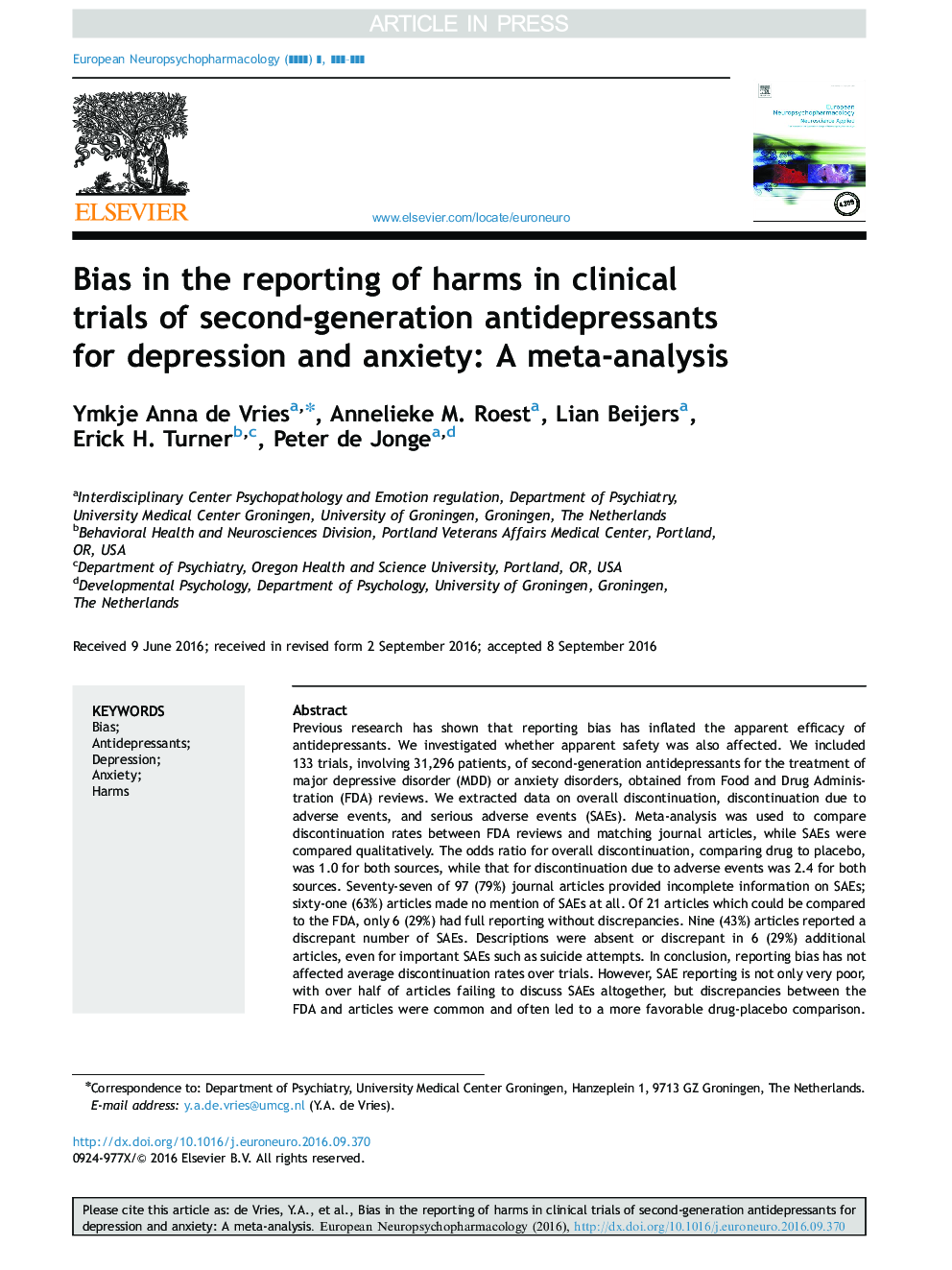| Article ID | Journal | Published Year | Pages | File Type |
|---|---|---|---|---|
| 4930806 | European Neuropsychopharmacology | 2016 | 8 Pages |
Abstract
Previous research has shown that reporting bias has inflated the apparent efficacy of antidepressants. We investigated whether apparent safety was also affected. We included 133 trials, involving 31,296 patients, of second-generation antidepressants for the treatment of major depressive disorder (MDD) or anxiety disorders, obtained from Food and Drug Administration (FDA) reviews. We extracted data on overall discontinuation, discontinuation due to adverse events, and serious adverse events (SAEs). Meta-analysis was used to compare discontinuation rates between FDA reviews and matching journal articles, while SAEs were compared qualitatively. The odds ratio for overall discontinuation, comparing drug to placebo, was 1.0 for both sources, while that for discontinuation due to adverse events was 2.4 for both sources. Seventy-seven of 97 (79%) journal articles provided incomplete information on SAEs; sixty-one (63%) articles made no mention of SAEs at all. Of 21 articles which could be compared to the FDA, only 6 (29%) had full reporting without discrepancies. Nine (43%) articles reported a discrepant number of SAEs. Descriptions were absent or discrepant in 6 (29%) additional articles, even for important SAEs such as suicide attempts. In conclusion, reporting bias has not affected average discontinuation rates over trials. However, SAE reporting is not only very poor, with over half of articles failing to discuss SAEs altogether, but discrepancies between the FDA and articles were common and often led to a more favorable drug-placebo comparison. These findings suggest that journal articles are an unreliable source of data on SAEs in antidepressant trials.
Related Topics
Life Sciences
Neuroscience
Biological Psychiatry
Authors
Ymkje Anna de Vries, Annelieke M. Roest, Lian Beijers, Erick H. Turner, Peter de Jonge,
